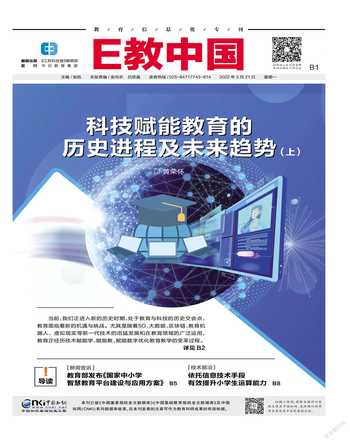REIMAGINING OUR FUTURES TOGETHER: A new social contract for education(Ⅲ)
Product by UNESCO (United Nations Educational, Scientific and Cultural Organization) 聯合国教科文组织
该报告秉承了教育应成为“全球公共利益”理念,进一步倡导构建新的社会契约,希望将国家政府、社会组织、学校和教师、青年与儿童、家长与社区等教育的相关利益方全部纳入契约,通过共同努力,充分发挥数字技术带来的教育红利。报告主要探讨和展望了面向2050年乃至未来的教育。
Catalyzing a new social contract for education
Large-scale change and innovation are possible. We will build a new social contract for education through millions of individual and collective acts — acts of courage, leadership, resistance, creativity, and care. A new social contract needs to overcome discrimination, marginalization, and exclusion. We must dedicate ourselves to ensuring gender equality and the rights of all regardless of race, ethnicity, religion, disability, sexual orientation, age, or citizenship status. A massive commitment to social dialogue, to thinking and acting together, is needed.
A call for research and innovation. A new social contract requires a worldwide, collaborative research programme that focuses on the right to education throughout life. This programme must centre on the right to education and be inclusive of different kinds of evidence and ways of knowing including horizontal learning and the exchange of knowledge across borders. Contributions should be welcomed from everyone—from teachers to students, from academics and research centres to governments and civil society organizations.
Mobilizing a new research agenda for the futures of education will both draw from, and generate significant amounts of, knowledge, data, and evidence, in a wide range of forms: quantitative and qualitative, normative and descriptive, digitizable and ephemeral, theoretical and practical. Knowledge needs to be channelled and expanded in order to understand present conditions and imagine new future possibilities for education. As a research agenda to advance the futures of education in the coming decades, it will need to continually reconsider the nature of knowledge, data, and evidence in education.
A call for global solidarity and international cooperation. A new social contract for education requires renewed commitment to global collaboration in support of education as a common good, premised on more just and equitable cooperation among state and non-state actors. Beyond North-South flows of aid to education, the generation of knowledge and evidence through South-South and triangular cooperation must be strengthened. The international community has a key role to play in helping states and non-state actors to align around the shared purposes, norms and standards needed to realize a new social contract for education. In this, the principle of subsidiarity should be respected, and local, national and regional efforts should be encouraged. The educational needs of asylum seekers, refugees, stateless persons and migrants, in particular, need to be supported through international cooperation and the work of global institutions.
Universities and other higher education institutions must be active in every aspect of building a new social contract for education. From supporting research and the advancement of science to being a contributing partner to other educational institutions and programmes in their communities and across the globe, universities that are creative, innovative and committed to strengthening education as a common good have a key role to play in the futures of education.
It is essential that everyone be able to participate in building the futures of education—children, youth, parents, teachers, researchers, activists, employers, cultural and religious leaders. We have deep, rich, and diverse cultural traditions to build upon. Humans have great collective agency, intelligence, and creativity. And we now face a serious choice: continue on an unsustainable path or radically change course.
This Report proposes answers to the three essential questions of What should we continue doing? What should we abandon? and What needs to be creatively reimagined? But the proposals here are merely a start. This Report is more an invitation to think and imagine than a blueprint. These questions need to be taken up and answered in communities, in countries, in schools, in educational programmes and systems of all sorts — all over the world.
Forging a new social contract for education is a critical step towards reimagining our futures together.
推动面向教育的新社会契约
大规模的变革和创新是可能的。我们将通过数以百万计的个人和集体行为——包括勇气、领导力、抵抗、创造力和关怀的行为,为教育打造新的社会契约。新的社会契约需要人类克服歧视、边缘化和排斥。我们必须致力于确保性别平等和所有人的权利,不分种族、族裔、宗教、残障、性取向、年龄和公民身份,着力开展社会对话、共同思考和共同行动。
呼吁研究和創新。面向教育的新社会契约是一个具有全球性和协作性,并聚焦终身受教育权的研究与创新项目。这个项目必须以受教育权为中心,包含横向学习和跨境知识交流等不同类型证据和认知方式,并欢迎所有人——从教师到学生,从学术和研究中心到政府与民间组织,为这种研究和创新作出贡献。
为教育的未来制订一个新的研究议程,汲取并产生大量的多种形式的知识、数据和证据,如定量和定性、规范性和描述性、数字化和瞬时性、理论性和实践性等形式。知识需要引导和扩展,以便了解当前的情况,并想象未来教育的新可能性。作为未来几十年推动教育发展的研究议程,它需要不断重新考虑教育中知识、数据和证据的性质。
呼吁全球团结和国际合作。面向教育的新社会契约需要对全球合作重新作出承诺,以国家和非国家行动者之间更加公正和公平的合作为前提,支持教育成为一种全球共同利益。除教育援助的南北流动外,我们的知识和经验还必须在加强南南合作和南北南三方合作中产生。国际社会要在帮助国家和非国家行动者,围绕实现面向教育的新社会契约所需的共同目标、规范和标准达成一致方面发挥关键作用,以推动实现重新构想。同时,应尊重相关附属原则,鼓励地方、国家和区域层面的努力,满足寻求庇护者、难民、无国籍者和移民的教育需求,尤其是借助国际合作和全球机构的力量。
大学和其他高等教育机构必须从各个方面,积极参与打造面向教育的新的社会契约。从支持研究和推进科学进步,到作为合作伙伴为本社区与全球各地其他教育机构和教育项目作出贡献,那些富有创造力、创新精神,并致力于推动教育作为一种公共利益的大学,在教育未来的构建中将扮演重要角色。
当然,至关重要的是,务必要让世界上每个人都能够参与教育的未来建设,包括儿童、青年、家长、教师、研究人员、雇主、文化领袖等。我们有深厚、丰富和多样的文化传统作为依托。人类拥有强大的集体能动性、智慧和创造力。此刻,我们正面临着一个重大抉择:是继续走在一条不可持续的道路上,还是彻底改弦易辙。
这份报告针对以下三个根本问题提出了对策建议:哪些工作应继续?哪些应摒弃?还有哪些需要创造性地重新构想?报告试图给出答案,但这里提出的建议仅是一个开端。这份报告与其说是擘画出一个蓝图,不如说是给全世界发送了一封鼓励思考和想象的邀请函,请人们在世界各国的社区、学校、各类教育计划、教育项目和体系中探讨这些问题并作出回答。
总之,为教育打造新的社会契约,是一起重新构想人类未来的关键一步。
——马鞍山市博物馆馆藏契约展

